Updated:
In Maximo 7.6.1.1, I have custom fields in these tables:
- WORKORDER:
X&Y - ASSET:
X&Y - LOCATIONS:
X&Y
I would like to populate the X & Y fields in WORKORDER using the logic below.
(The logic is similar--but slightly different--to the logic in the auto-create spatial search.)
At a high level:
- If exists, use WOSERVICEADDRESS.LATITUDEY & LONGITUDEX
- Else, use ASSET.X & Y
- Else, use LOCATIONS.X & Y
Proposed pseudo-code:
Scenario: A user is creating a new work order or editing an existing work order.
When the WO is saved:
01 1. In the related WOSERVICEADDRESS table:
02
03 if WOSERVICEADDRESS.LATITUDEY gets edited:
04
05 if WOSERVICEADDRESS.LATITUDEY is not null:
06 then update WORKORDER.X & Y with WOSERVICEADDRESS.LATITUDEY & LONGITUDEX
07
08 #Handle the scenario where the WOSERVICEADDRESS.LATITUDEY is changed to null:
09
10 elseif WORKORDER.ASSETNUM is not null:
11 then update WORKORDER.X & Y with the related values in ASSET.X & Y
12
13 elseif WORKORDER.LOCATION is not null:
14 then update WORKORDER.X & Y with the related values in LOCATIONS.X & Y
15
16 2. In the WORKORDER table:
17
18 (if WORKORDER.ASSETNUM gets edited or if WORKORDER.LOCATION gets edited) and if WOSERVICEADDRESS.LATITUDEY is null
19
20 then:
21 if WORKORDER.ASSETNUM is not null:
22 then update WORKORDER.X & Y with the related values in ASSET.X & Y
23
24 elseif WORKORDER.LOCATION is not null:
25 then update WORKORDER.X & Y with the related values in LOCATIONS.X & Y.
Is there a way to do this Jython Automation script (without slowing down the workorder application)?
(Keyword: Maximo Spatial)
